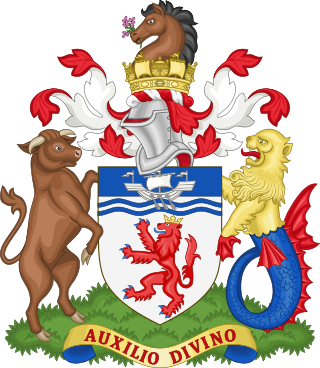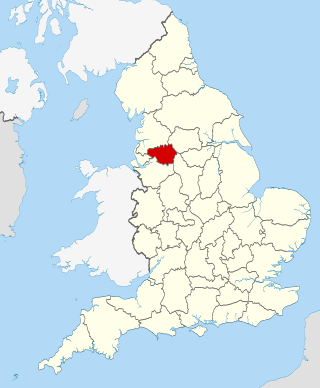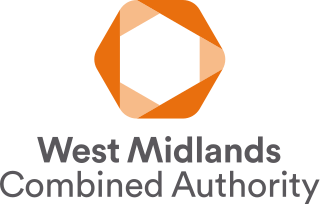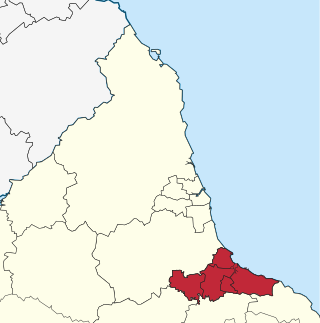
Local authority areas in England typically have an executive leader and a cabinet selected from the local council, similar to how the national prime minister and cabinet are selected from Parliament. In contrast, residents of some areas, or groups of areas known as combined authorities or combined county authorities, directly elect the executive mayors of their local government.

On 1 April 2009 structural changes to local government in England took place which reformed the local government of seven non-metropolitan counties: Bedfordshire, Cheshire, Cornwall, County Durham, Shropshire, Northumberland, and Wiltshire. In each case the government of the county was changed from a two-tier to a unitary system, with Bedfordshire and Cheshire being divided into two new unitary authorities.

Devon County Council is the county council administering the English county of Devon. Based in the city of Exeter, the council covers the non-metropolitan county area of Devon. Members of the council (councillors) are elected every four years. Almost all councillors are members of the major national political parties.

North Yorkshire Council, known between 1974 and 2023 as North Yorkshire County Council, is the local authority for the non-metropolitan county of North Yorkshire in England. Since 2023 it has been a unitary authority, having taken on district-level functions when the county's districts were abolished. The non-metropolitan county is smaller than the ceremonial county of North Yorkshire, which additionally includes Middlesbrough, Redcar and Cleveland, York, and the part of Stockton-on-Tees south of the River Tees. The council has been under no overall control since 2023. It is based at County Hall in Northallerton. The council is a constituent member of the York and North Yorkshire Combined Authority.

A combined authority (CA) is a type of local government institution introduced in England outside Greater London by the Local Democracy, Economic Development and Construction Act 2009. CAs are created voluntarily and allow a group of local authorities to pool appropriate responsibility and receive certain devolved functions from central government in order to deliver transport and economic policy more effectively over a wider area. In areas where local government is two-tier, both must participate in the combined authority.

The Greater Manchester Combined Authority (GMCA) is a combined authority for Greater Manchester, England. It was established on 1 April 2011 and consists of 11 members; 10 indirectly elected members, each a directly elected councillor from one of the ten metropolitan boroughs that comprise Greater Manchester, together with the directly elected Mayor of Greater Manchester. The authority derives most of its powers from the Local Government Act 2000 and Local Democracy, Economic Development and Construction Act 2009, and replaced a range of single-purpose joint boards and quangos to provide a formal administrative authority for Greater Manchester for the first time since the abolition of Greater Manchester County Council in 1986.

Plymouth City Council is the local authority for Plymouth, a unitary authority with city status in the ceremonial county of Devon, England.

The Liverpool City Region Combined Authority (LCRCA), officially the Halton, Knowsley, Liverpool, St Helens, Sefton and Wirral Combined Authority, is the combined authority of the Liverpool City Region in England. Its area includes the City of Liverpool local authority area, the Metropolitan Boroughs of Knowsley, St Helens, Sefton, and Wirral, and the Borough of Halton. It was established on 1 April 2014 by statutory instrument under the provisions of the Local Democracy, Economic Development and Construction Act 2009. Composition of the combined authority is made up of the leaders of the six principal membership authorities, plus several non-voting members with various vested interests in the activities of the combined authority.

Torbay Council is the local authority for Torbay, a unitary authority with borough status in the ceremonial county of Devon, England. The council is based in Torquay.

The South Yorkshire Mayoral Combined Authority is the combined authority for South Yorkshire in England, with powers over transport, economic development and regeneration. It covers a total area of 3,484 km2 (1,345 sq mi) with a population of 1.8 million. The four metropolitan boroughs of South Yorkshire – Sheffield, Rotherham, Doncaster and Barnsley – are full members of the authority, while the Derbyshire Dales, North East Derbyshire, Chesterfield and Bolsover districts of Derbyshire, and the Bassetlaw district of Nottinghamshire, are non-constituent members.

The North East Combined Authority (NECA), officially the Durham, Gateshead, South Tyneside and Sunderland Combined Authority, was one of the combined authorities in North East England. It was created in 2014, and consisted of the City of Sunderland; Metropolitan Borough of Gateshead, South Tyneside; and Durham County local authorities.

The Cities and Local Government Devolution Act 2016 is an Act of the Parliament of the United Kingdom that allows for the introduction of directly elected mayors to combined authorities in England and Wales and the devolution of housing, transport, planning and policing powers to them. The bill was introduced to the House of Lords by Baroness Williams of Trafford, the Parliamentary Under Secretary of State for Communities and Local Government, on 28 May 2015.

The West Midlands Combined Authority (WMCA) is the combined authority for the West Midlands metropolitan county in the United Kingdom. It was established by statutory instrument under the Local Democracy, Economic Development and Construction Act 2009. It is a strategic authority with powers over transport, economic development and regeneration. The authority formally came into being on 17 June 2016.

The Tees Valley Combined Authority (TVCA) is the combined authority for the Tees Valley urban area in England consisting of the following five unitary authorities: Darlington, Hartlepool, Middlesbrough, Redcar and Cleveland, and Stockton-on-Tees, covering a population of approximately 700,000 people. It was proposed that a combined authority be established by statutory instrument under the Local Democracy, Economic Development and Construction Act 2009. It is a strategic authority with powers over transport, economic development and regeneration including the flagship Teesside Freeport.

The Cambridgeshire and Peterborough Combined Authority is a combined authority covering the ceremonial county of Cambridgeshire in the East of England. The authority was established on 3 March 2017. The authority is led by the directly elected Mayor of Cambridgeshire and Peterborough.

The North of Tyne Combined Authority was a mayoral combined authority which consisted of the local authorities of Newcastle upon Tyne, North Tyneside, and Northumberland, all in North East England. The authority came into being on 2 November 2018 under the statutory name Newcastle upon Tyne, North Tyneside and Northumberland Combined Authority. The three local authorities previously formed part of the North East Combined Authority, which continued to exist covering a smaller area. The two combined authorities cooperated on the North East Joint Transport Committee.

The Mayor of West Yorkshire is a directly elected mayor responsible for the metropolitan county of West Yorkshire in England. The Mayor chairs and leads the West Yorkshire Combined Authority, and assumes the office and powers of the West Yorkshire Police and Crime Commissioner.

The North East Combined Authority (NECA) is a combined authority in North East England. NECA has a directly-elected Mayor and seven member councils; two county unitary authorities and five metropolitan boroughs.

The East Midlands Combined County Authority (EMCCA) is a combined county authority in England. The authority covers the two ceremonial counties of Derbyshire and Nottinghamshire in the wider East Midlands region of six ceremonial counties.
The Hull and East Yorkshire Mayoral Combined Authority (HEYMCA) is the proposed combined authority for the city of Hull and county of East Yorkshire, in the Yorkshire and the Humber region of England. The first election for the Mayor of Hull and East Yorkshire, who will chair HEYMCA, is expected to take place in May 2025.



















